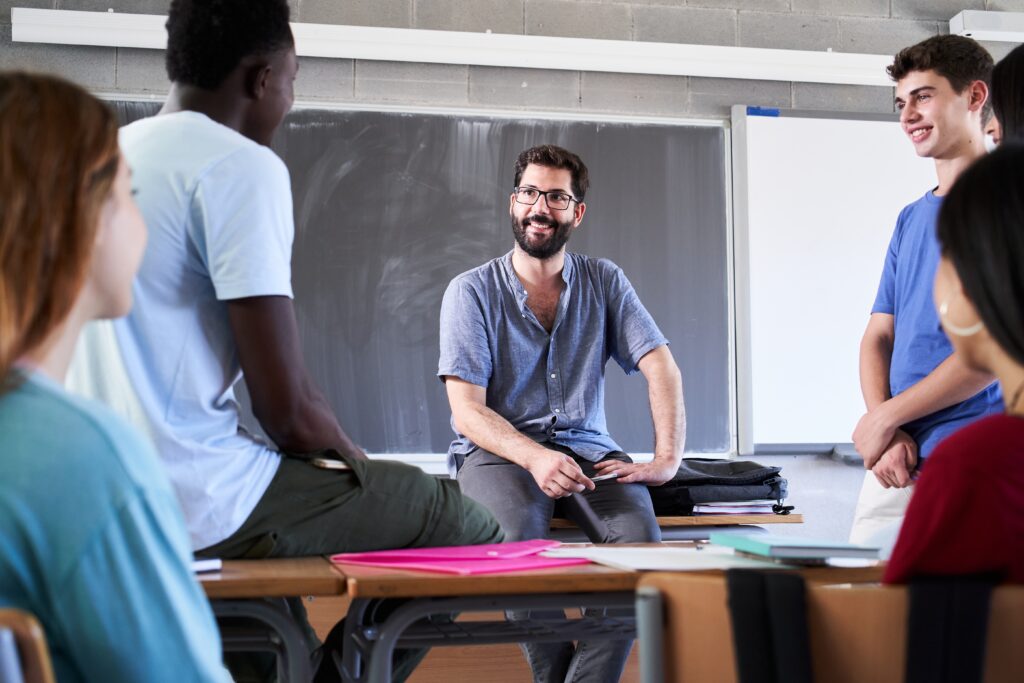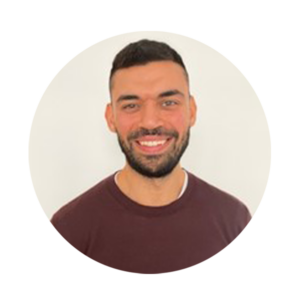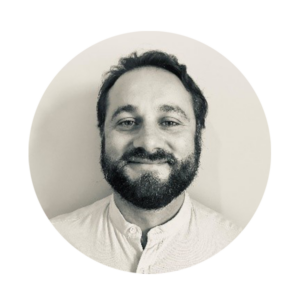How are children and young people (CYP) getting on in the UK? In recent decades, social scientists have been pulling together data that suggest a concerning decline in their mental health and wellbeing, with children reporting poor subjective wellbeing, low life satisfaction and high school anxiety compared with other nations of the Global North (Children’s Society, 2024). The press often points the finger at social media, COVID and other factors, but what about schooling? Studies suggest that the school system is a significant negative factor in the lives of many of our CYP. Whilst some enjoy school, many others, often the most disadvantaged, experience it as psychologically harmful and this is reported, consistently, by young people (Popoola et al., 2023) and families (Square Peg, 2022).
Despite this, CYP have almost no say in the structures and aims of education (Lundy, 2007) and their voices are silent when it comes to implementing national policies. Traditionally, CYP are positioned as passive recipients of schooling who lack the space to exert agency. This stands in direct violation of their basic human rights (United Nations, 2009) and democratic principles.
In response, the social enterprise States of Mind launched the Breaking the Silence (BtS) project in 2019, in partnership with the Institute of Education, UCL. BtS sought to move beyond traditional approaches to engaging with young people, focusing on co-creating new insights and solutions around education and mental health through Youth Participatory Action Research (YPAR).

“YPAR can be used by researchers, practitioners and teachers, and we hope Breaking the Silence provides an example that can be drawn upon by others.”
What is Youth Participatory Action Research?
A YPAR approach takes a view that those experiencing societal issues are best placed to explore them, aiming to combine reflection (research and analysis) with practice (action) (Cornish et al., 2023), in what Freire (1970) refers to as ‘praxis’. Facilitators of projects support CYP to devise their own research questions, propose solutions, choose how to disseminate findings and take action to precipitate change. It differs from traditional epistemological stances that value notions of objectivity and neutrality, instead placing onus on collaborative exploration, the generation of knowledge and crucially, action.
The outcomes of Youth Participatory Action Research (YPAR) projects, such as BtS, can be observed at multiple levels – in particular it can have a transformative impact on youth researchers; it can help them to gain a deep comprehension of chosen issues and strengthen their sense of identity. A desired outcome is the development of ‘critical consciousness’ or an understanding of the systemic and structural roots of problems (Freire, 1970). Further, participants can build a sense of autonomy, ownership and knowledge around complex issues and build an understanding of how to challenge systems (Shamrova & Cummings, 2017).
What does this look like in action? In this case, various phases of BtS engaged groups of Year 12 students (aged 16-18) from sixth-form colleges across a London borough. Students applied to join the project and committed to participating in sessions over an academic year. So far, BtS has progressed through five distinct phases, with each phase aligning with the start of a new academic year. Youth researchers volunteer to engage with the project for one school year, after which they hand the baton to a new cohort, who continue to generate findings and take part in joint action.
In phase 1, youth researchers investigated how the education system affects their mental health and wellbeing, in response to a government consultation on school accountability and Ofsted’s role. Following several focus groups with other students, youth researchers wrote a letter to Amanda Spielman, His Majesty’s Chief Inspector at Ofsted, to share their concerns, communicate insights and offer recommendations. They highlighted major flaws around how education is measured and how this leads to ‘memorisation’ instead of learning, negatively impacting on the mental health and wellbeing of students and lacking real-world value. Youth researchers aspired for more autonomy and for opportunities for CYP during schooling to: ‘discover their strengths and weaknesses… while allowing them to start distinguishing their unique values and preferences for the future’.
The response received from Ofsted was perceived by the students as dismissive of their concerns and ideas. Participants in phase 2 explored student perspectives around the impact of school on their personal development and mental health. Their findings aligned closely with other studies (McPherson et al., 2023), noting high levels of pressure and psychological distress caused by school practices.
The young people identified that the way schools are ‘judged’ has a profound impact on the shape and quality of education received and hence, subsequent groups of researchers developed an alternative framework for evaluating education. This work involved conducting focus groups, interviews, and surveys with headteachers, teachers, fellow students, and former Ofsted inspectors. Across phases 3 and 4, the youth researchers created their own evaluation framework in response to their findings and named it the ‘Review for Progress and Development’ (RPD). They co-produced a documentary to share their experiences of taking part in the YPAR process and to disseminate the outcomes of their research.
By starting with no pre-defined objectives and allowing the research to evolve, participants perceive a strong sense of ownership and can design powerful and unique ways of presenting their work. The young people have presented their findings to key stakeholders at numerous conferences and to key politicians at the Education Select Committee. They contributed to the NEU’s ‘Beyond Ofsted’ Inquiry, and have appeared in The Guardian. Although difficult to measure, it is possible that Breaking the Silence has played a role in shifting public attitudes and contributing to the growing movement for reforming Ofsted (NEU, 2024).
After each phase a small number of youth researchers—typically two or three—choose to remain involved with States of Mind. These young people form a working group who have continued to meet regularly, driven by their commitment to educational and social change. This sustained engagement highlights a lasting impact on their political awareness and activism and hence, a strength of YPAR is that it can empower young people to engage meaningfully in societal change at multiple systemic levels.

“A YPAR approach takes a view that those experiencing societal issues are best placed to explore them, aiming to combine reflection (research and analysis) with practice (action) (Cornish et al., 2023), in what Freire (1970) refers to as ‘praxis’.”
Challenges and implications
Facilitating Youth Participatory Action Research (YPAR) can present structural challenges. In particular, a political and educational environment that prioritises high stakes testing and a standardised curriculum (Kirshner, 2015). These issues were eased due to pre-existing relationships between States of Mind and the participating schools and colleges. There are also ethical challenges, such as the potential for facilitators to inadvertently impose their views or misinterpret the voices of children and young people (CYP) (James, 2007). We encountered difficulties in balancing the need to take leadership at certain points with the risk of influencing the youth researchers’ perspectives; it is helpful to engage in ongoing reflexivity and consistently confirm understandings with the participants to subvert this.
Importantly, to conduct YPAR requires adults to take an alternative worldview, to surrender control and allow the young participants time and space to deeply consider their experiences, generate a shared conception of the issues, plan and execute their own research. In taking a position as co-researcher, it is crucial to proceed without a set of outcomes in mind and thus facilitate the cooperative generation of new knowledge.
If we really want to explore the problems and conceive solutions to promote the mental health and wellbeing of young people, we need to move beyond the tokenistic posturing of ‘student voice’, where a school council may be used to decide what colour to paint the library, and embrace ‘coproduction’, where adults share power with CYP to make decisions on issues that impact their lives. We can then shift away from working on young people to working alongside them. Our research explores how this is possible. YPAR can be used by researchers, practitioners and teachers, and we hope Breaking the Silence provides an example that can be drawn upon by others.
NB this blog has been peer-reviewed
References
- Children’s Society. (2024). The Good Childhood Report.
- Cornish, F., Breton, N., Moreno-Tabarez, U. et al. Participatory action research. Nat Rev Methods Primers 3, 34 (2023). https://doi.org/10.1038/s43586-023-00214-1
- Freire, P. (2000). Pedagogy of the oppressed (30th anniversary ed). Continuum.
- James, A. (2007). Giving voice to children’s voices: Practices and problems, pitfalls and potentials. American Anthropologist, 109(2), 261–272.
- Kirshner, B. (2015). Youth activism in an era of education inequality. In Youth Activism in an Era of Education Inequality. New York University Press.
- Lundy, L. (2007). ‘Voice’ is not enough: Conceptualising Article 12 of the United Nations Convention on the Rights of the Child. British Educational Research Journal, 33(6), 927–942
- McPherson, C., Bayrakdar, S., Gewirtz, S., Laczik, A., Maguire, M., Newton, O., O’Brien, S., Weavers, A., Winch, C & Wolf, A. (2023) Schools for All? Young people’s experiences of alienation in the English secondary school system, Edge Foundation.
- Millar, F (2022). Inspecting the inspectors: students assess Ofsted regime’s toll on wellbeing | Ofsted | The Guardian
- National Education Union. (2024). Beyond Ofsted. Home – Beyond Ofsted
- National Education Union. (2024). Replace Ofsted. Replace Ofsted | National Education Union (neu.org.uk)
- Popoola, M., Sivers, S., Hooper, R. & Ahad, A. (2023). Young Peoples’ Views on Mental Health. “School is too much pressure”.
- States of Mind (2019a) “We’re not learning, we’re memorising”: Read London students’ powerful open letter. www.statesofmind.org/journal/2020/09/16/students-ofsted-open-letter.html
- States of Mind (2019b) Read Ofsted’s reply to London students’ open letter. www.statesofmind.org/journal/2020/09/28/ofsted-response.html
- States of Mind (2023) Breaking the Silence. https://www.statesofmind.org/breaking-the-silence
- Square Peg & Not Fine In School submission of evidence to attendance consultation February 2022. DfE Attendance Consultation (teamsquarepeg.org)
- UN Committee on the Rights of the Child (2009). General Comment No. 12 The right of children to be heard.
Authors

Jaspar Khawaja is a London-based educational psychologist. Prior to his doctoral training, he worked in a secondary school with young people who had experienced trauma, as well as in a CAMHS inpatient unit for adolescents with mental health needs. In both his research and practice, he is interested in using collaborative approaches with children and young people, prioritising the value of experiential knowledge to understand and address problems caused by unequal and harmful social systems.

Dr. Chris Bagley is a psychologist, teacher, writer and musician with an interest in the evolution of ideas, educational transformation and systems change. He is Director of Research at social enterprise, States of Mind, Co-Director at Square Peg CIC and a tutor at The Institute of Education, University College London. As a practitioner, Chris has spent many years working with the most marginalised young people and families and in particular, those subject to school exclusion, prison and the youth justice system. He has published a number of academic articles and book chapters alongside opinion pieces in The Independent, Byline Times, The Psychologist and Schoolsweek. Website: www.chrisbagley.co.uk